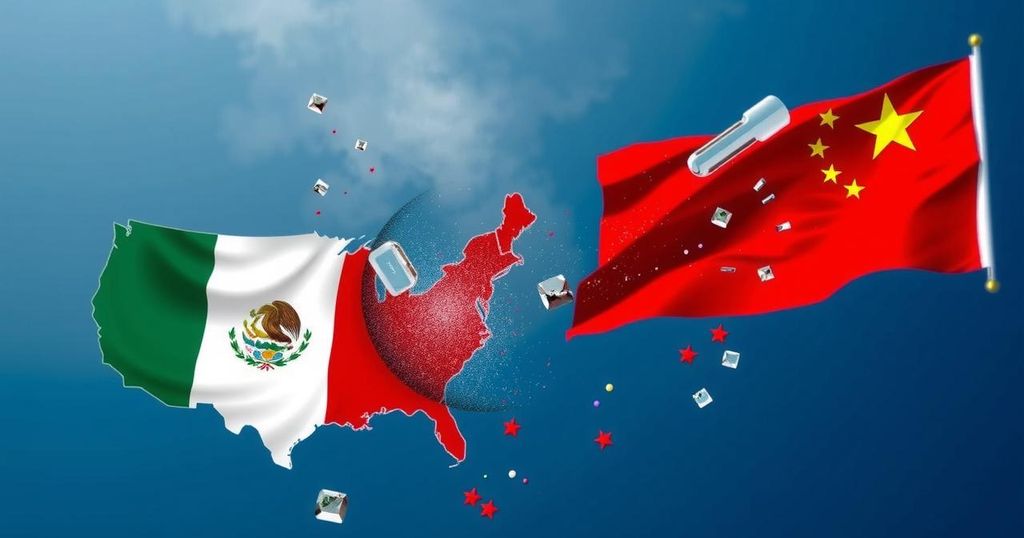Trump Proposes Increased Tariffs to Combat Drug Trafficking and Illegal Immigration

Donald Trump has proposed a 10 percent tariff on Chinese goods and a 25 percent tariff on products from Canada and Mexico. This initiative aims to combat drug trafficking, particularly fentanyl, flowing into the U.S. from these countries. The tariffs will remain until drug trafficking and illegal immigration cease. Major figures have noted the strategic impact of these tariffs on foreign policy and economic outcomes.
President-elect Donald Trump recently announced plans to introduce an additional 10 percent tariff on products imported from China, alongside a significant 25 percent tariff on goods from Canada and Mexico. This announcement was made via his social media platform, Truth Social, where Trump addressed the issue of drug trafficking, particularly the flow of fentanyl into the United States. He lamented that discussions with Chinese representatives yielded no concrete results, as he attributed a substantial portion of the drug influx to Mexico’s porous borders.
In his statement, Trump declared, “Until such time as they stop, we will be charging China an additional 10% Tariff, above any additional Tariffs, on all of their many products coming into the United States of America.”, underscoring his administration’s commitment to counteracting drug-related challenges through economic measures. Furthermore, he indicated his intention to implement a 25 percent tariff on all goods from Mexico and Canada as part of his first executive orders once he assumes office.
He further emphasized the need to address what he described as an “invasion” of illegal immigrants and drugs crossing U.S. borders. In conjunction with these tariffs, Trump stated they would remain in place as a means for forcing a cessation of drug trafficking and illegal immigration. The assertion reflects his ongoing commitment to an America-first policy, targeting economic outcomes that align with national interests.
Trump’s tariff proposals come amid ongoing campaigns and discussions on immigration and drug enforcement policy, which he has highlighted as pivotal during his bid for re-election. Notably, underlining the economic implications, U.S. Census Bureau data reveals that goods worth approximately $4 trillion were imported to the U.S. in 2023, with China responsible for a significant share estimated at $433 billion.
The proposals have stirred reactions from prominent figures like billionaire Bill Ackman, who noted that these tariffs serve as a strategic tool for Trump to exert influence over foreign policy even prior to taking office. He remarked, “In other words, @realDonaldTrump is going to use tariffs as a weapon to achieve economic and political outcomes which are in the best interest of America.”
In summary, Trump’s tariff strategies signal his firm stance on immigration and drug trafficking while aiming to reinforce domestic economic interests. In alignment with these ambitions, discussions regarding trade and border control are set to intensify in light of the forthcoming policy changes.
The topic of tariffs and trade involves complex interactions between international agreements, national security, and domestic policy. Tariffs serve as a tool for governments to influence economic conditions by either encouraging or discouraging imports. President Trump’s approach reflects a broader trend of utilizing tariffs as a strategic response to issues like drug trafficking and immigration, particularly from countries like China, Canada, and Mexico.
In conclusion, President-elect Donald Trump’s proposed tariffs represent a significant approach to address challenges posed by drug trafficking and illegal immigration. These measures aim to bolster U.S. economic interests while reflecting a commitment to an America-first policy. The implications of such tariffs could reshape economic relations with key trading partners, setting the stage for broader discussions on immigration and drug enforcement in the future.
Original Source: www.newsweek.com







